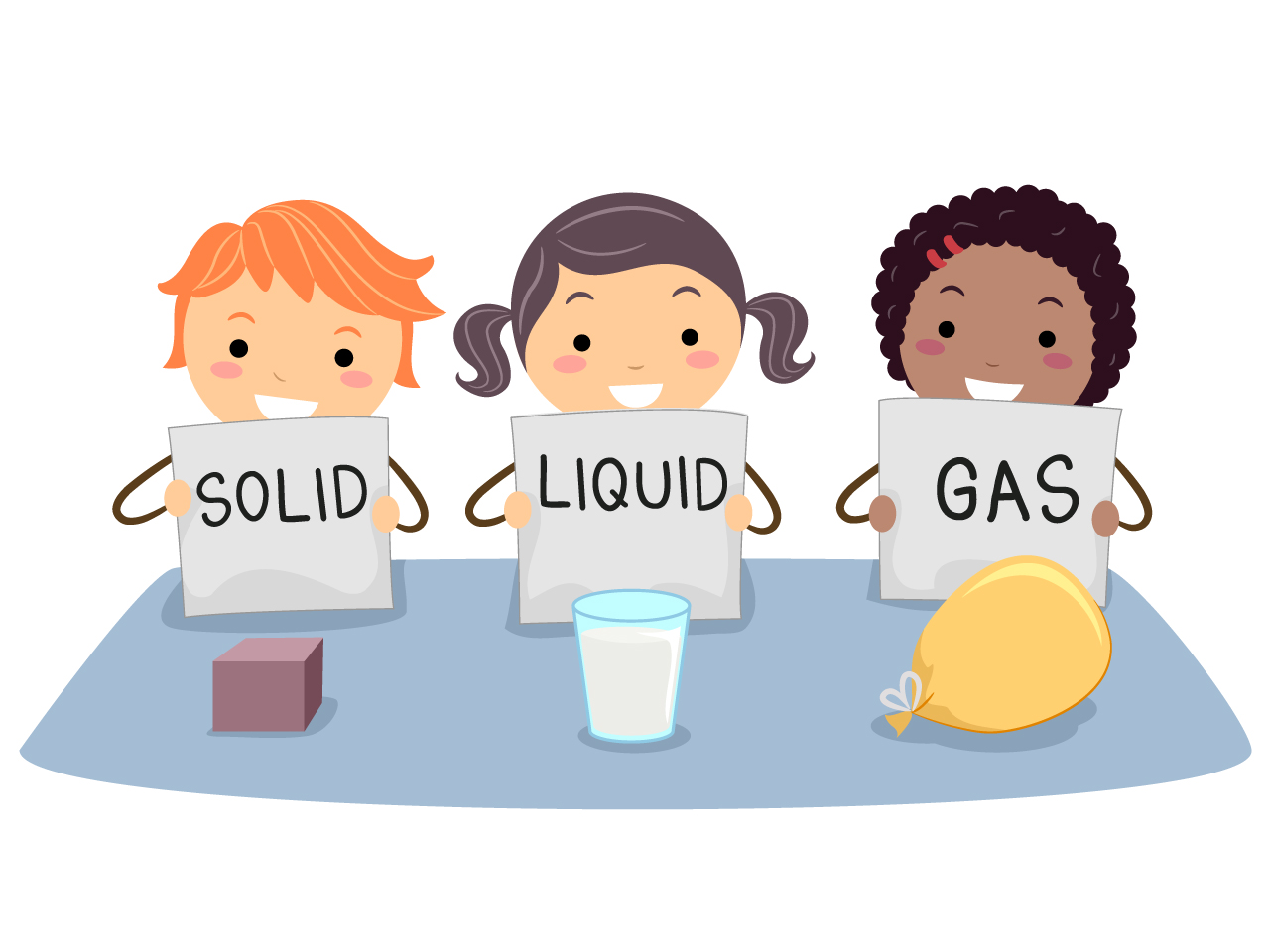Understanding magnetism Normal Physical Science Worksheets for Ages 4-8
4 filtered results
-
From - To
Looking to teach young learners the fascinating world of magnetism? Our "Understanding Magnetism" worksheets for ages 4-8 offer engaging, age-appropriate activities aligned with normal physical science standards. Designed to spark curiosity and develop foundational learning skills, these printable resources help children explore magnetic forces, poles, and attract-repel mechanisms through fun, interactive exercises. Ideal for the classroom or at-home learning, these worksheets will make understanding magnetism an exciting adventure for kids while reinforcing their scientific knowledge. Dive into the magical pull of magnets with superbly crafted activities that captivate and educate effortlessly!
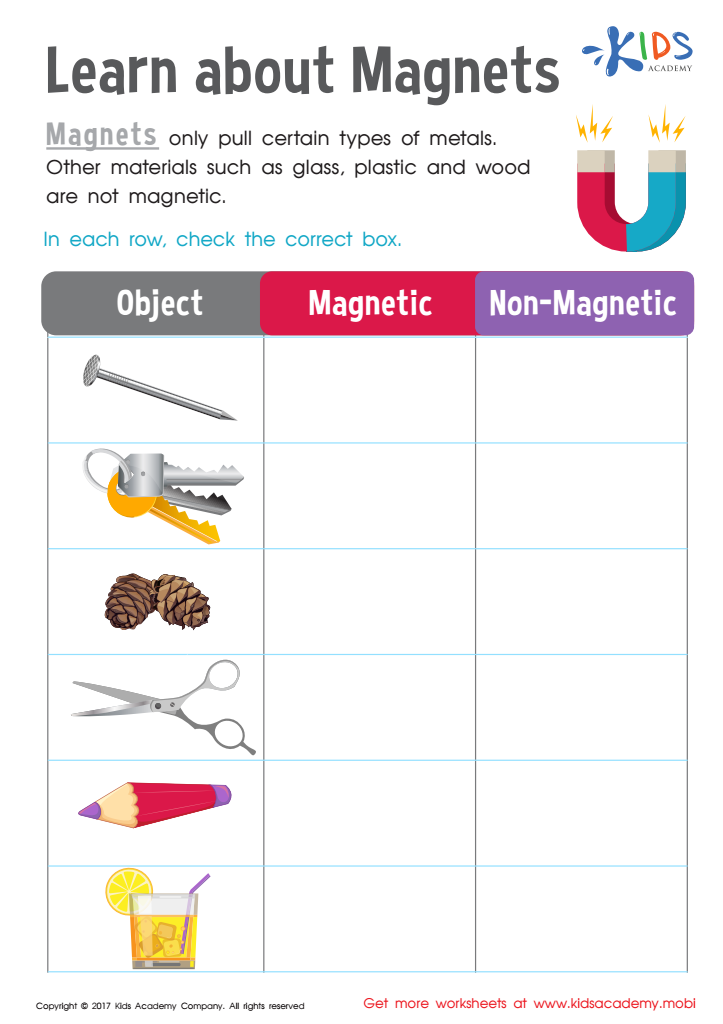

Magnetic Or Not Worksheet
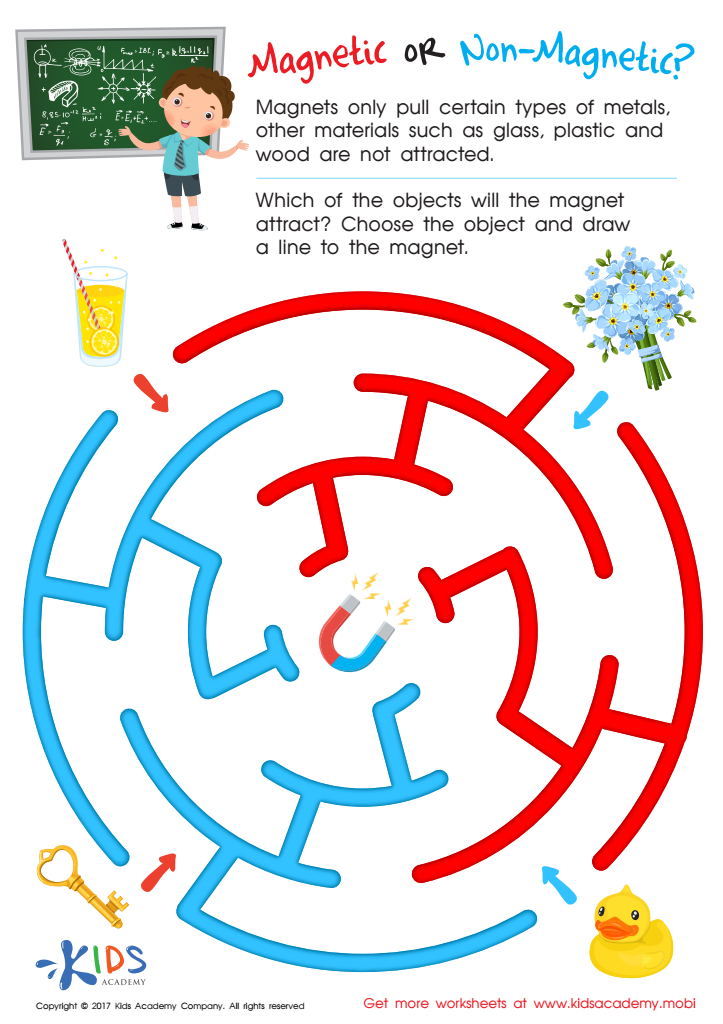

Magnetic or Non–Magnetic Worksheet
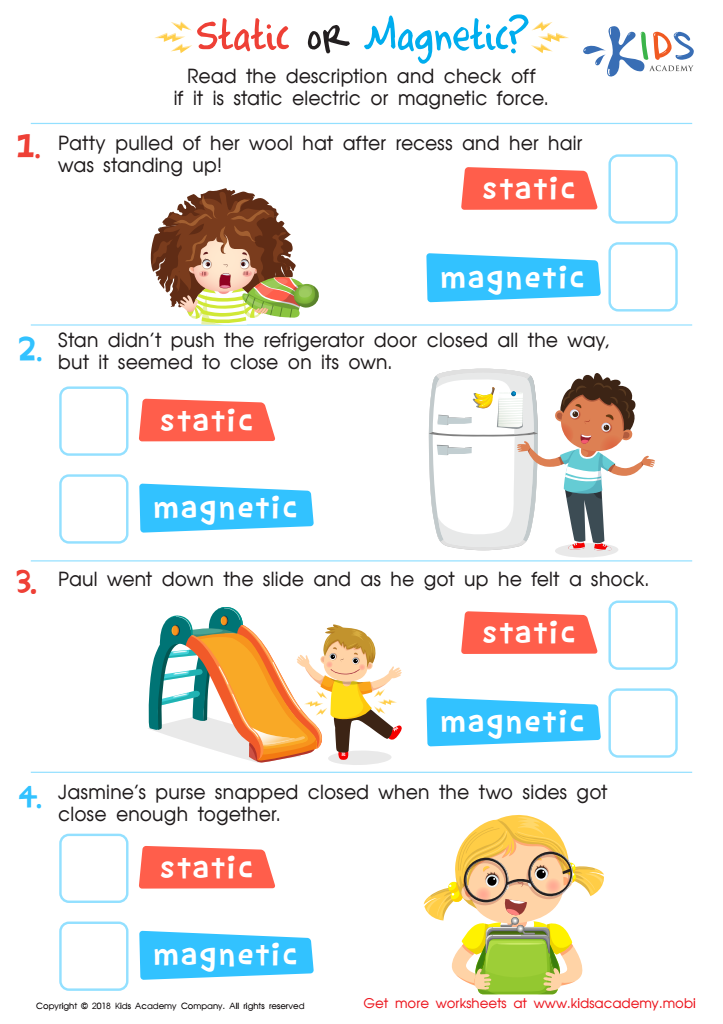

Static or Magnetic Printable Worksheet
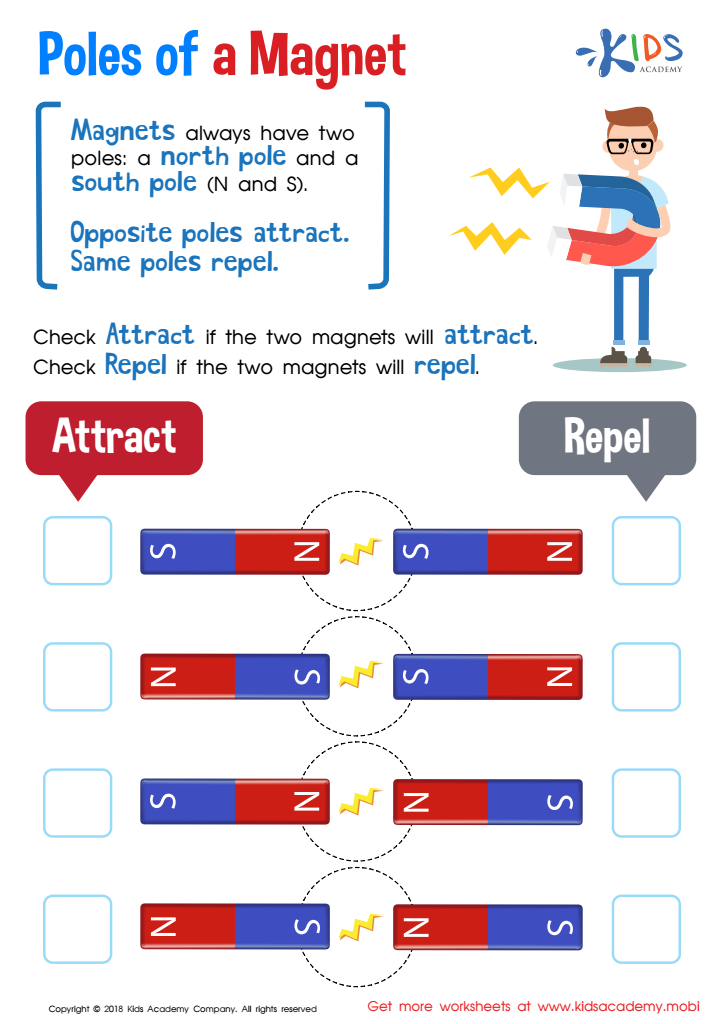

Magnet Poles Attract or Repel Worksheet
Understanding magnetism at a young age is vital for several reasons. First, it fuels curiosity and stimulates a child's natural desire to explore the world. When children learn about magnets, they become more interested in natural phenomena, encouraging a lifelong love for science.
From a cognitive development perspective, experimenting with magnets helps children enhance their problem-solving skills and understand cause-and-effect relationships. For instance, seeing how magnets attract some objects but not others can spark critical thinking and questions, leading to further investigation and learning.
Moreover, magnetism is a concept full of practical applications. It ties into various aspects of daily life, from fridge magnets to magnetic clasps on bags, helping children make connections between their lessons and real-world examples. These relatable experiences help solidify abstract scientific principles, making learning more engaging and meaningful.
Parents and teachers can use magnetism to introduce fundamental scientific methods, like hypothesizing, testing, observing, and concluding. Such activities develop a child's ability to think logically and methodically—a crucial skill for all areas of learning.
Lastly, learning about magnetism can be inclusive and hands-on, catering to diverse learning styles. Whether through visual demonstrations, tactile activities, or auditory explanations, teaching about magnets can adapt to each child’s unique way of understanding, fostering a more inclusive learning environment.

 Assign to My Students
Assign to My Students





